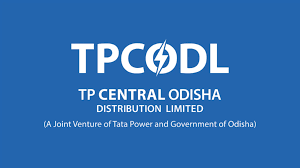In a carefully timed move, the United States and China have agreed to a major trade agreement aimed at slashing reciprocal tariffs, just as India and Pakistan observed a ceasefire following a days-long military exchange.
While the battlefield cooled on the Subcontinent, high-stakes diplomacy played out behind closed doors in Geneva, where trade representatives from Washington and Beijing quietly orchestrated what both sides are calling a ‘reset’ in bilateral economic relations.
According to statements by The White House, US President Donald Trump hailed the deal as a ‘total reset’ in a post on Truth Social, saying, “A very good meeting today with China, in Switzerland. Many things were discussed, much agreed to. A total reset negotiated in a friendly, but constructive, manner.”
According to US Treasury Secretary Scott Bessent and Trade Representative Jamieson Greer, the two-day Geneva summit paved the way for mutual tariff reductions.
Reciprocal duties that had surged to 125-145% will now be dramatically reduced to just 10%. The US will retain certain targeted tariffs, such as those on Chinese imports linked to fentanyl, but the overall burden on goods is expected to drop significantly.
Coordinated Diplomacy: Engaging India and Pakistan While Dealing With Each Other
Strikingly, the US and China finalised this trade pact even as their officials were actively involved in easing tensions between India and Pakistan.
While President Trump and senior US diplomats played a central role in nudging Islamabad towards ceasefire negotiations, China simultaneously reaffirmed its support for Pakistan, making the entire scenario feel ‘opportunistic’.
Indeed, while Indian jets struck terror camps and Pakistan scrambled for a face-saving exit, Washington and Beijing’s representatives were in Lake Geneva, holding what their executives described as ‘very productive talks’.
Trade War Reversal: Market Relief and Strategic Realignment
The breakthrough ends months of bruising trade tensions that disrupted global supply chains and strained diplomatic ties. Washington had earlier imposed a steep 145% tariff on Chinese imports, prompting Beijing to retaliate with 125% duties and restrictions on rare earth exports.
The agreement is expected to impact a wide range of sectors, including electronics, machinery, textiles, and consumer goods. While markets await further details, early reactions from Wall Street and Asian indices have been overwhelmingly positive.
As India and Pakistan prepare for a formal meeting between their Director Generals of Military Operations to solidify the ceasefire, a different kind of reset is underway on the global economic stage. The US-China trade deal, quietly sewn together as two South Asian neighbours stood at the brink, signals not just an economic pivot but a reminder of how large powers operate.

.jpg)
.jpg)
.jpg)
.jpg)

.jpg)
